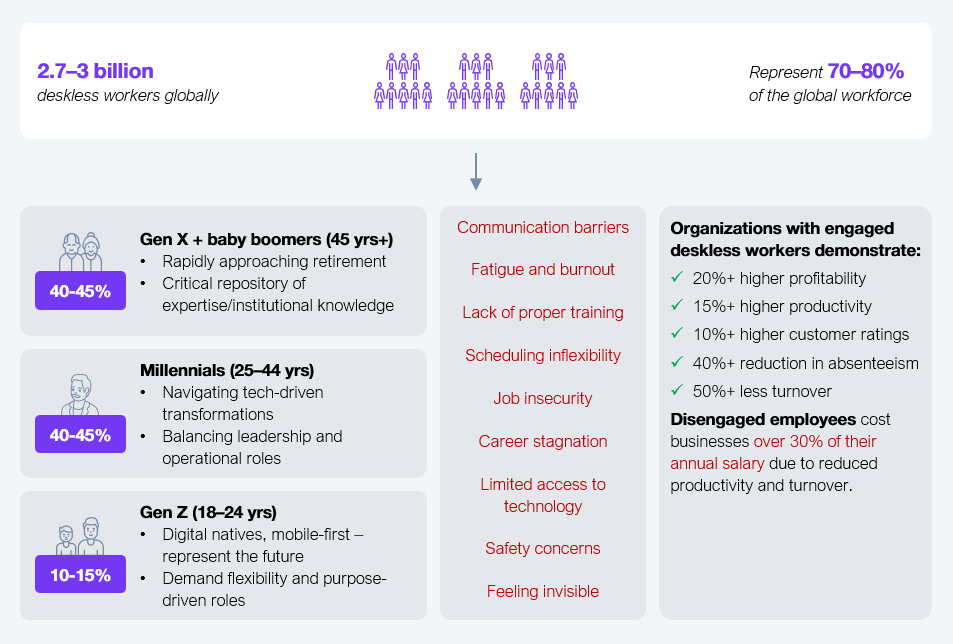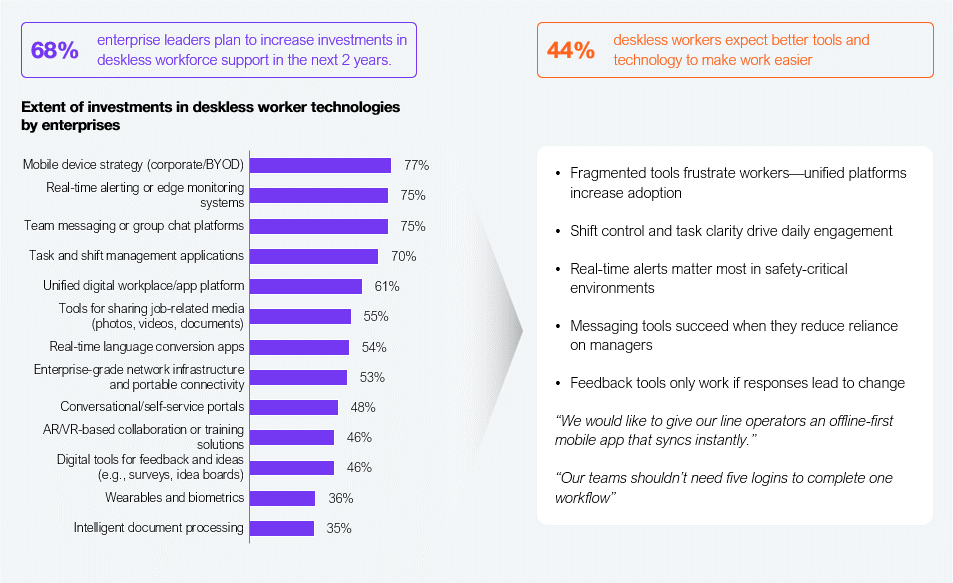Deskless workers make up the majority of the global workforce, yet they remain digitally underserved and emotionally disconnected. Despite their critical roles in keeping operations running, their needs and experiences are often unintentionally overlooked in digital transformation efforts.

Source: HFS Research, 2025, Boston Consulting Group, Gallup
Deskless roles span industries, employment models, and generations. Millennial workers are experiencing rising levels of burnout, driven by the pressures of work and family life. Older workers, particularly baby boomers, have institutional knowledge but are increasingly at risk as they near retirement. Gen Z is entering the workforce with strong expectations around purpose, recognition, and values alignment. Addressing the needs of such a wide-ranging group requires more than generic tools or broad-brush policies (see Exhibit 1).
This report identifies the critical design levers for significantly enhancing deskless worker effectiveness. The insights are drawn from:
Three themes emerged clearly from the study:
The good news is that 68% of executives plan to increase investments in deskless worker initiatives over the next two years (see Exhibit 2). These investments can deliver transformative value with a renewed focus on usability, inclusion, and experience design.

Sample: 605 Deskless Workers and 102 Executive Participants
Source: HFS Research, 2025
Ultimately, empowering deskless workers is not about re-architecting how work is fundamentally experienced and supported. It starts by putting their needs not at the edge but at the center of enterprise transformation.
Register now for immediate access of HFS' research, data and forward looking trends.
Get StartedIf you don't have an account, Register here |
Register now for immediate access of HFS' research, data and forward looking trends.
Get Started